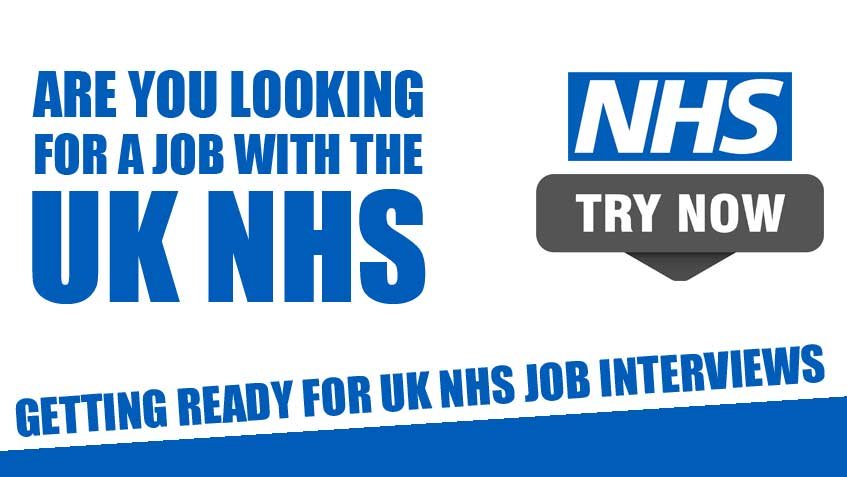Securing a job with the UK National Health Service (NHS) can be both an exciting and nerve-racking experience. This guide is tailored for Nigerians in the UK, offering practical advice to help you prepare effectively and stand out during NHS job interviews.
Understanding the NHS Hiring Process
The NHS recruitment process is structured to identify candidates who align with its core values while possessing the required skills. Here’s what to expect:
- Application Submission: Submit your application through the NHS Jobs website or other authorized portals.
- Shortlisting: Applications are reviewed, and shortlisted candidates are invited for interviews.
- Interview: Expect questions about NHS values, role-specific scenarios, and competency-based inquiries.
- Assessment: Some roles may require additional evaluations like written tests or practical demonstrations.
- Offer: Successful candidates receive job offers, subject to satisfactory references and background checks.
Key NHS Values to Embrace
The NHS is built on values outlined in its Constitution. These include:
- Respect and Dignity: Treating individuals with respect.
- Compassion: Providing care with empathy and warmth.
- Commitment to Quality Care: Ensuring excellence in care delivery.
- Improving Lives: Enhancing health outcomes for individuals and communities.
- Working Together for Patients: Collaborating with patients, families, and colleagues.
- Everyone Counts: Promoting diversity, fairness, and equity.
Preparing for Your Interview
1. Research Thoroughly
- Know the Trust: Familiarize yourself with the NHS Trust you’re applying to, including its goals, recent achievements, and challenges.
- Understand the Role: Study the job description, required skills, and responsibilities.
- Stay Updated: Learn about current issues affecting the NHS, such as policy changes, financial challenges, and healthcare innovations.
2. Tailor Your Application Materials
- CV: Highlight your achievements and experiences relevant to the role.
- Cover Letter: Showcase your understanding of the position, your motivation, and your alignment with NHS values.
- Supporting Documents: Include references, certifications, and any required documentation.
3. Practice Common Interview Questions
NHS interviews often include competency-based, role-specific, and values-based questions. Use the STAR method (Situation, Task, Action, Result) to structure your answers. Examples include:
- Competency-Based: “Describe a time you worked effectively in a team.”
- Role-Specific: “How do you manage priorities during a busy shift?”
- Values-Based: “How do you ensure patient privacy and confidentiality?”
4. Polish Your Interview Skills
- Rehearse: Practice answering questions aloud with a friend or mentor.
- Prepare Questions: Research insightful questions to ask your interviewers, focusing on team dynamics, growth opportunities, or ongoing projects.
- Body Language: Maintain eye contact, sit upright, and use positive gestures to convey confidence and clarity.
Post-Interview Tips
- Send a Thank-You Note: Express gratitude for the opportunity and reiterate your interest in the role.
- Reflect on Your Performance: Identify areas of strength and improvement for future interviews.
- Be Patient: NHS recruitment can take time, so remain patient and keep exploring other opportunities.
FAQs
- What types of questions can I expect during NHS interviews? Expect competency-based, role-specific, and values-aligned questions, such as demonstrating leadership, teamwork, and problem-solving skills.
- How do I show alignment with NHS values? Share examples of how you’ve upheld respect, compassion, and quality care in past roles or experiences.
- What should I bring to the interview? Prepare copies of your CV, cover letter, professional certifications, references, and a valid photo ID.
- How do I follow up after the interview? Send a professional thank-you email, and take time to evaluate your performance for future improvement.
Join Our WhatsApp Channel
Stay updated on the latest UK news, including education, health, job openings, and more for those living in the UK!
Join here: Naija UK Channel
Also, follow us on our social media channels for the latest updates and discussions:
- Twitter: @NaijaUKConnect
- Facebook: Naija UK Connect
- Instagram: @naijaukconnect
Stay informed and take the next step in your NHS career journey with confidence!




